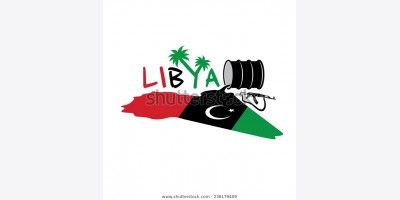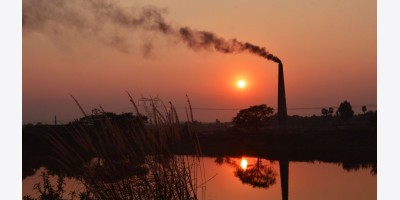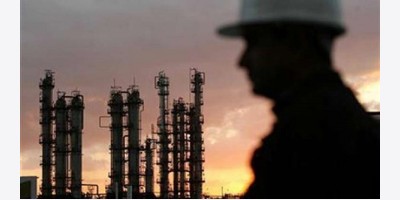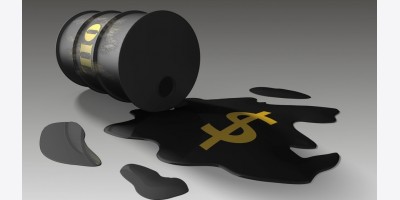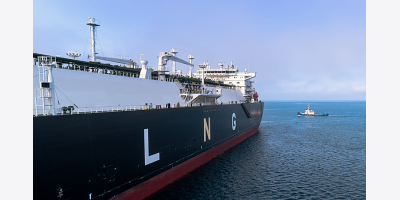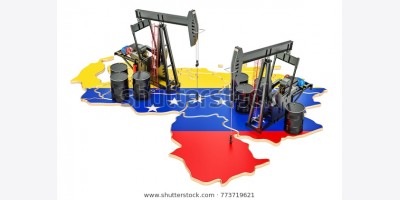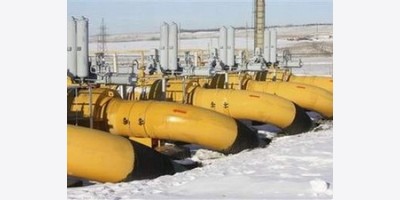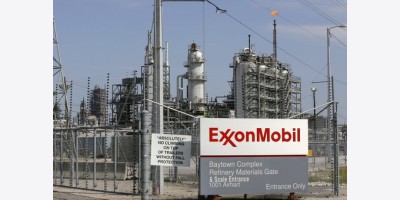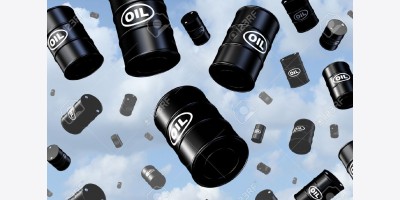Saudi Oil Minister Al-Naimi Sees No Reason to Change OPEC Output
By In-Soo Nam
SEOUL--The Organization of the Petroleum Exporting Countries won't change its crude oil output level when it meets next month, Saudi Arabia's Minister of Petroleum and Mineral Resources Ali Al-Naimi said Monday.
"Supply is highly sufficient. Demand is great. And the market is fairly stable. There's no reason for a change. absolutely no reason," Mr. Al-Naimi said on the sidelines of an energy conference in Seoul.
Asked if OPEC's output cap of 30 million barrels a day is right, the oil minister said: "I think so. I know so."
He also said the current global oil price of $100 a barrel is the fair price "for everybody, consumer, producer and oil companies."
Mr. Al-Naimi said OPEC is willing to supply any shortage which may arise in the market if Russia's exports of oil are disrupted as a result of the Ukraine-Russia crisis.
Benchmark Nymex crude oil for June delivery was Monday trading at a fraction over US$100 a barrel, and about $8 a barrel over levels at the start of the year.
Write to In-Soo Nam at In-Soo.Nam@wsj.com
In a deal between two UK brokerages, Tullett Prebon has agreed to buy privately owned, oil-focused PVM Oil Associates for $160 million, Tullet Prebon said Friday.
The acquisition would “increase the scale of the group’s activities in the energy sector and give the group a significant presence in broking crude oil and petroleum products complementing its existing activities in these areas,” Tullet Prebon said in a statement.
The deal would also allow Tullett Prebon to expand its data offering to include the current and historical oil price data generated from the PVM business and to offer this data to a broader set of customers, it said.
PVM’s business is focused entirely on energy products, Tullett Prebon said. PVM has experience as a broker covering OTC swaps, forwards and physical crude oil and refined products, and exchange traded instruments including WTI, Brent and gasoil futures, it said. “PVM is being sold by its management and certain employees,” Tullet Prebon said. “The senior management of PVM will remain with the company after the acquisition is completed.”.
For the fiscal year ended July 31, 2013, PVM reported revenue of $107.5 million and profit before tax of $18.2 million, Tullet Prebon said. PVM’s consolidated gross assets for the fiscal year of $79.2 million, it said.
State-owned Indian refiners have bought only 8.35 million barrels of West African crudes through tenders for loading in June, compared with 13.975 million barrels for May, a fall of 40%, Platts data showed Friday.
The main reason for the drop was India’s biggest buyer of West African crude, Indian Oil Corp., issued only one June-loading tender, compared with three May-loading tenders. IOC bought 2.95 million barrels of West African oil for June loading, made up of 950,000 barrels of Nigeria’s Qua Iboe, 1 million barrels of Nigeria’s Okwuibome and a 1 million barrel parcel of Equatorial Guinea’s Zafiro.
For May loading, the company bought 10.5 million barrels of West African crudes. India’s BPCL bought 2.85 mil barrels of Nigerian crudes for June loading compared with 2.875 mil barrels in May.
For its June loading tender, BPCL bought a VLCC containing two 950,000 barrel parcels of Nigeria’s Qua Iboe along and a Suezmax with 950,000 barrels of Nigeria’s Yoho.
Elsewhere, Hindustan Petroleum Corporation Limited (HPCL) bought 1.9 million barrels of Nigeria’s Qua Iboe for June, compared with none for May.
Mangalore Refinery and Petrochemicals Limited (MRPL) bought 650,000 barrels of Angola’s Kissanje for June loading through a recent tender.
Over the past 18 months, India has emerged as the biggest importer of Nigerian crudes and has become a key player in a West African crude market coming to terms with declining sales to North America. BPCL, HPCL, IOC and MRPL typically buy crude through tenders normally announced on a monthly or fortnightly basis for loading 4-6 weeks ahead.
Africa-focused Aminex saw its shares rise early Friday after it said it had reached a deal to sell its US business to Northcote and Springer Oil & Gas for $5 million in cash and shares. In a statement, the AIM-listed company said it will get $150,000 in cash, $350,000 worth of US’ Northcote Energy shares and a revenue share capped at $4.5 million.
Northcote will initially acquire a 70% interest in the Shoats Creek field in Louisiana from Springer and will simultaneously farm down 50.0% of this interest to North American Petroleum.
Under the heads of terms agreement, Northcote and Springer have agreed to inject a minimum of $1 million in development capital into the assets they are buying over the next year to increase production, Aminex said.
Aminex shares were up 2.76% at 0.74 pence Friday. Aminex CEO Jay Bhattacherjee said the deal would allow the company to focus on growing the business in Africa and in particular Tanzania. “With first gas scheduled for 2015 from the Kiliwani North field and significant progress being achieved on the seismic programme in Ruvuma, the management team looks to the future with confidence,” Bhattacherjee said.
Aminex expects to begin production in early 2015 through a major new pipeline currently being constructed for the Tanzanian government with funding from the Export-Import Bank of China.
Northcote’s CEO, Randall Connally, said the Shoats Creek transaction will allow the company to expand on the US onshore oil and gas region, with partners equally focused on exploiting an oil field with great potential and a production history estimated at over 2 million barrels.
The US oil and natural gas rotary rig count rose by one to 1,855 for the week ending Friday, up 86 from 1,769 in the comparable week a year ago, Baker Hughes said in its weekly report.
Horizontal rigs in the US bounced off record highs achieved the prior two weeks to fall by four this week to 1,243, according to Baker Hughes data. US gas rigs for the week totaled 323, unchanged for a second week. The oil rig count rose by one for the week to 1,528. There are four miscellaneous rigs, also unchanged for the second straight week, but down three from seven a year ago, according to Baker Hughes data.
Canada’s count slid further to 145, down 18 from the week before, but up 27 from 118 the same week a year ago. Canada’s oil rigs were at 54, down 13, while gas rigs were at 91, down five from the week before. There were no miscellaneous rigs in Canada, unchanged from the prior week and prior year.
By Nick Cunningham | Sun, 11 May 2014 00:00 | 0
As Russian President Vladimir Putin tries to maintain its grip over Eastern Europe with its vast web of natural gas pipelines, one small European country gained a bit of leverage over Russia. Lithuania announced on May 8 that it has successfully pressured Russian gas giant Gazprom into lowering its price for natural gas through 2015, according to Reuters.
Lithuania is not the first country that comes to mind when thinking of who may be able to stand up to Russia. But the deal came as Lithuania made some aggressive moves to seek global suppliers of liquefied natural gas (LNG). The small Baltic nation was in talks with Norway and Qatar and was trying to sign a deal as quickly as possible.
To be sure, it is not as if Lithuania has achieved energy independence from Russia. In fact, it relies on Russia for 92 percent of its imported natural gas supplies. But Lietuvos Dujos – the Lithuanian utility that accounts for 40 percent of the domestic market – forced Gazprom to slash its price of gas. Although the details of the agreement were not disclosed, Lithuanian Prime Minister Algirdas Butkevicius previously said that he expected Gazprom to agree to a 20 percent price reduction.
“Lietuvos Dujos has entered into an agreement with Gazprom that involves a significant reduction in the price of natural gas,” the company said in a statement.
By seeking alternative supplies of energy, Lithuania forced Russia into price concessions for fear of losing market share. In the coming months and years, as Europe continues to diversify its sources of energy, it will enhance its leverage of Russia in a similar manner.
But perhaps more important than Lithuania seeking LNG suitors is the ongoing case on behalf of the European Commission against Gazprom for price manipulation and antitrust violations. Europe has argued that Gazprom manipulates prices for political gain and the European Commission is set to release the results of a two-year investigation this month, which is expected to demonstrate substantial evidence that Gazprom is breaking European laws. After that report is released, the EC could take action relatively quickly.
“I think we are going to see, first of all, a spectacular lump of bad publicity for Gazprom, because the complaints will list all of the bad things that Gazprom has been doing, then we will have fines, which may be very substantial, and there will also be the opportunity for the companies that have been overcharged for gas to launch lawsuits against Gazprom over the extortionary prices that they have been charging,” Edward Lucas, the editor of The Economist, told Radio Free Europe in an interview.
The European Commission could seek fines against Gazprom and/or a change in pricing structure. Gazprom has long linked its prices to the price of crude oil, and has signed up countries to long-term contracts, which are often expensive.
But as the spot market in Europe has grown as a result of a flood of Qatari LNG – which was once destined for the U.S. until shale gas came about – Russian gas is no longer the only game in town. Purchases of natural gas on the spot market have shot up from just 15 percent in 2008 to 44 percent in 2012. This has Gazprom’s gas contracts looking more and more expensive and even extortionary, as Mr. Lucas points out. Eastern European countries often pay 1 ½ times more for natural gas than does Western Europe.
That has Gazprom scrambling to preempt any actions by the European Commission. By granting price cuts, it hopes to disarm the complaints by many EU member countries. It has maintained near-monopoly control over Europe’s energy for years, but its influence could be on the wane. The discount it just gave to Lithuania is a sign that cracks in Russia’s grip over Europe are beginning to show.
By Nick Cunningham of Oilprice.com
By James Stafford | Fri, 09 May 2014 17:29 | 0
As Ukraine continues the downward descent into violent crisis this week, Russian President Vladimir Putin continues to baffle the world’s leaders. On 7 May, Putin spoke publicly about Ukraine, leaving everyone guessing at his intentions in urging pro-Russian separatists in Ukraine’s east to postpone referendums they were planning to hold this weekend.
There is a purposeful confusion coming out of Moscow, as Putin openly supported upcoming presidential elections in Ukraine to be held on 25 May, while the Russian foreign minister has harshly criticized the elections. There is no foreign leader today who can go to mental bat with Putin.
On Thursday, Oilprice.com’s special guest contributor, Ukraine oil and gas expert Robert Bensh, gave a televised interview to CNBC, stating: “Throughout the crisis, Russia has sought to mask its intentions and has been engaged in a sophisticated PR campaign, often saying one thing while doing and preparing for another.”
So what does Russia really want? According to Bensh, Moscow wants—and needs—control of the pipeline system. “[…]If you have control of the pipeline system and you are able to bring your product into Europe, you have a compliant Europe, you have a compliant Ukraine. And this is what Putin is going after.”
Elsewhere, we are keeping a close eye on Turkey, and Prime Minister Recep Tayyip Erdogan, who is busy convincing foreign investors that the unexpected victory of his Justice and Development Party (AKP) in March local elections, spells certain stability.
However authoritarian his moves have been—and make no mistake, they are—there may possibly be an element of stability to be found in this. It may not last forever, but for now, Erdogan has cemented his authority. It is unfortunate that he has had to do this by removing personal freedoms.
But we’re also paying attention to the approaching anniversary of the Gezi Park protests, when things really started to go bad for Erdogan. That anniversary is on 31 May, and it will take place against the backdrop of the trials of 255 people involved in the protests last year, during which at least eight people were killed and more than 8,000 injured.
The defendants face vague charges of violating demonstration laws, injuring civil servants and damaging property. They could face up to 12 years in prison if convicted. This would be a good time for Erdogan to throw the protesters a fig leaf.
Investors aren’t entirely convinced, but Turkey remains optimistic that they will be. As Bloomberg reports: “The country’s current-account deficit has risen to almost 8 percent of gross domestic product -- bad enough to earn Turkey a place among Morgan Stanley’s Fragile Five, the bank’s moniker for the emerging-markets countries whose economies are most vulnerable to higher world interest rates.”
The agency also notes that “from May 30 through the end of February, foreign investors sold $500 million more in Turkish stocks and $2.8 billion more in Turkish bonds than they purchased, according to data from Turkey’s central bank.”
From an energy perspective, however, investors should be attracted at least by the countries potential to become the key oil and gas hub linking Europe and the Middle East, for which getting their first—when things aren’t in place yet—is key to getting their at all. The only question is whether Erdogan means stability or instability. Western investors need some more assurances and a clear demonstration of legitimate longevity.
This week’s Oil & Energy Insider is a must read for energy investors. Find out more about how you can start a 30 day free trial here.
James Stafford
Editor, Oilprice.com
By James Burgess | Sun, 11 May 2014 00:00 | 0
Defying the demands of the international community, the Iranian government insisted it will continue to boost oil exports according to the Wall Street Journal. As part of the interim international accord with P5+1 nations, Iran agreed last December to limit its oil exports to 1 million barrels per day for six months.
But in response to a WSJ question, Iranian Oil Minister Bijan Zanganeh said, “we are trying to increase exports. Our exports are above 1 million barrels a day.”
In fact, Iran’s oil exports have averaged 1.37 million barrels per day over the first three months of the year. China, India, and South Korea accounted for much of the increase, according to IEA data in April. In April the Obama administration sought to downplay news reports that Iran was exceeding its allotted 1 million bpd limit, stating that it believed Iran would meet the limit when averaged over six months. “We expect, we still expect, and anticipate that this will average over a six-month period ... to meeting the bar that was set,” State Department spokeswoman Jen Psaki said on April 11.
Iran was once the third largest exporter of crude, but crushing sanctions implemented in early 2012 by the United States and the EU severely slashed exports. Before the sanctions, Iran was exporting over 2.5 million bpd.
Meanwhile, talks on Iran’s nuclear program are set to restart on May 13, the beginning of negotiations over a comprehensive agreement. Both sides have expressed an optimistic tone heading into the discussions – Iran’s Foreign Minister Javad Zarif was impressed with the “unexpectedly fast pace of progress in the negotiations so far,” according to European Voice.
The agreed upon deadline is July 20, and if no deal is made, the sanctions that were removed in last year’s interim deal automatically go back into place.
By James Burgess of Oilprice.com
By Charles Kennedy | Sun, 11 May 2014 00:00 | 0
Asia is more at risk from a disruption in oil supplies than either Europe or the United States. That is according to a new report from Chatham House, which found that China and India are poorly positioned to handle such a supply crisis.
The paper looked at what would happen in the event of a major supply disruption, such as the loss of 10 million barrels per day through the Strait of Hormuz. More than 40% of Asia’s crude oil supplies transits through the narrow strait in the Persian Gulf. How would Asian countries handle such a calamity?
The obvious surge in oil prices would be the biggest threat, as opposed to a shortage of oil. High oil prices would inflict more damage on energy hungry nations of China and India, whereas the United States and Europe have improved fuel efficiency significantly.
IEA member countries, which include the U.S., the EU, as well as South Korea and Japan, have all agreed to store 90 days’ worth of oil supply in strategic reserves, which would be deployed in the event of a supply shortage. China, although not a member, has developed its own reserve. India, on the other hand, has not, and thus would be severely impacted.
Moreover, the response by Asian governments would be unpredictable, adding a risk premium to the price of oil. For example, if India decided to ban exports of refined products in an attempt to conserve supplies for domestic consumption, it would lead to shortages elsewhere in Asia, pushing up prices further.
The report calls on Asian governments to develop strategic oil reserves and to coordinate their policies with the IEA, even if they are not members. It also says that Asian countries should clarify how they intend to allocate scarce fuel supplies in the event of an outage.
By Charles Kennedy of Oilprice.com
By Daniel J. Graeber | Sun, 11 May 2014 00:00 | 0
A bill passed in a House energy committee aims to amend the rules for cross-border energy projects, suggesting the political fight over Keystone XL is over.
The House Energy and Commerce Committee approved resolution 3301, the so-called North American Energy Infrastructure Act. Authored by Reps. Fred Upton, R-Mich., and Gene Green, D-Texas, the bill aims to do away with the current processes for approving electrical, gas and oil infrastructure that would cross the U.S. border with Mexico or Canada.
"No one can rightfully argue that the current presidential permit process is not broken," Upton said in a May 8 statement.
A presidential permit is needed for cross-border projects and it's been more than five years since pipeline company TransCanada submitted its application for the Keystone XL pipeline. Since then, the company constructed and started service at its 485-mile Gulf Coast pipeline from Cushing, Okla., considered the U.S. leg of the pipeline.
Keystone XL itself would extend more than 1,100 miles from Alberta to Nebraska before it connected to existing links to Cushing. Designed to deliver oil sands, the pipeline has become the scapegoat not only for environmentalists, but for policymakers on both sides of the U.S. energy debate.
U.S. Sens. Mary Landrieu, chairwoman of the Senate Energy Committee, drafted a bill with Sen. John Hoeven, R-N.D., that would advance Keystone XL. Landrieu said May 1 it's time to stop debating the project and move ahead with construction.
"This pipeline is clearly in our national interest, and I urge all senators to join Sen. Hoeven and me to support this bill," she said.
Bipartisan bickering over procedural voting issues, however, left the bill dead on the Senate floor.
In April, the U.S. State Department said the federal agencies in charge of the permitting process needed more time because of legal issues related to the route through Nebraska. A state court is hearing challenges to legislation that gave Gov. Dave Heineman authority over the route and, while the consultation process isn't starting over, the State Department said route uncertainty was slowing federal decisions.
Upton said the legislation he helped write with his counterpart Green would get around such delays. With North American energy production on the rise, U.S. policymakers can make it easier to take full advantage of the boom by building more cross-border projects.
"This approach is a sincere effort to focus on a targeted solution to the lessons learned from the Keystone pipeline," he said.
The lesson learned after five years of waiting may be that the fight, at least in political terms, is over for Keystone XL.
By Daniel J. Graeber of Oilprice.com
Kathrine Schmidt 09 May 2014 22:22 GMT
Petrobras reported lower first-quarter profits and output as production disruptions weighed on the balance sheets of the state-led Brazilian giant.
The Rio de Janeiro-based company late on Friday posted net income of 5.39 billion reais ($2.43 billion) in the three months to March, off 30% from the year-ago figure of 7.69 billion reais.
The lower profits were recorded despite 12% jump in revenue to 81.54 reais.
Production was down 1% to 2.53 million barrels of oil equivalent per day due to the demobilisation of the Brasil floating production, storage and offloading unit at the Roncador field.
The P-20 Marlim platform was also offline throughout the quarter due to repairs from a fire in December but since has restarted output on 7 April.
The hit to earnings comes at an already difficult time for Petrobras, which is fighting output declines and pushing a technically challenging ramp-up in its pre-salt province.
Petrobras also faces outside pressure from investigations into bribery allegations in its contracts with Dutch floating production system provider SBM Offshore.
The company has also faced fresh criticism over a Texas refinery purchase in 2006 after former downstream director Paulo Roberto Costa was arrested in March on charges of involvement in a money-laundering scheme spanning $10 billion reais.
Chief executive Maria das Gracas Foster, however, expressed optimism that the company could still pull off its promised production turnaround in 2014 on the strength of new pre-salt output, which in a bit of good news hit record monthly production of 395,000 barrels per day in March.
"We are confident that we will reach our goal of growing production by 7.5% in 2014," she said in a statement.
The third quarter is expected to bring the start-up of the P-61 platform and its associated tender-assisted drilling unit at the Papa Terra field as well as the Cidade de Ilhabela FPSO in the Sapinhoa Norte field.
In the fourth quarter the Cidade de Mangaratiba is due online at the Iracema Norte field.
The assassination of Col. Ibrahim Al-Senussi, a top government intelligence official, in Benghazi on Thursday shows how perilously close Libya is to the brink of a collapse. This North African country which has Africa's largest oil reserves has seen a steady deterioration in security since the civil war that led to the ouster of Muammar Gaddafi three years ago.
Without a strong police force or a unified military, the Libyan government is struggling to control hundreds of militias that sprang up in the chaos that followed the uprising. They hold sway over the regions under their control, fragmenting this country of six million into fiefdoms. The oil industry is virtually paralyzed. There is massive traffic in illegal weapons.
In a way, Benghazi, the birthplace of the 2011 uprising, mirrors Libya as it is now. This eastern city has witnessed a series of attacks, targeted killings and bombings, mostly directed against soldiers and police officers who served under the ousted ruler.
Political squabbling only compounds Libya's security problems. For example, the legitimacy of the new prime minister — the fifth since Gaddafi was overthrown in 2011 — is contested by some groups. Ahmed Maiteeq, a businessman, was elected in the first week of this month after a disputed vote and a walkout by some lawmakers. The vote was originally scheduled to take place last month, but it was interrupted when gunmen stormed the parliament (the General National Congress) forcing the deputies to evacuate. The building has been stormed several times by gunmen over the last year and a half.
How the prime minister's post became vacant also throws some light on Libya's security situation. Abdullah Al-Thinni resigned last month, citing an attack by gunmen on his family just a month into his term as head of the government. His predecessor, Ali Zeidan, had to leave Libya after his government proved unable to stop a militia from filling a tanker with stolen oil.
Unfortunately, political turmoil and militia violence reinforce each another. Rebels are occupying the eastern ports of Ras Lanuf and Es Sider which used to export more than 300,000 barrels of oil per day (bpd). Oil output has shrunk to around 250,000 bpd from 1.4 million bpd since protests at oil facilities started across the country. The loss of its main source of revenue weakens the government even further.
Rebels occupying major oil ports in eastern Libya said on Wednesday they would boycott Prime Minister Ahmed Maiteeq. The group wanted a federal system sharing power and oil wealth between the regions. One group even boasts of a self-styled prime minister.
Every country that undergoes a revolution or major political upheaval witnesses a fierce power struggle. In the case of Libya, energy wealth adds a sharper edge to this struggle.
Some people in and outside Libya say Western governments, which intervened decisively in the anti-Gaddafi uprising enforcing a no-fly zone and supplying weapons to rebels, bear a moral responsibility to help the country find a way out of its dire predicament. But given the colonial legacy of Western powers in the Third World and the disastrous consequences of their recent interventions in the Middle East, this is likely to do more harm than good. The UN should think of an Afro-Asian effort aimed at restoring peace in Libya. The immediate aim should be to help the country assemble an efficient police force and a unified army. This North African nation faces a real risk of breaking apart unless something is done immediate
Sun May 11, 2014 3:55pm BST
May 11 (Reuters) - Kuwait's state oil group said it signed a six-year liquefied natural gas (LNG) supply deal with Royal Dutch Shell on Sunday, worth an estimated $12 billion, as the major oil exporter seeks to meet energy demands for the hot summer months.
The deal between Kuwait Petroleum Corp (KPC) and Shell was reported last month in a Kuwaiti newspaper but with no financial details.
KPC also plans to sign a $3 billion deal LNG supply deal with BP on Monday, said Nasser al-Mudaf, head of KPC's international marketing division.
He did not provide the volume of the super-cooled gas that would be supplied by the companies. A Shell spokesman said he could not comment on details of commercial agreements.
Kuwait wants to burn LNG instead of resorting to diesel and crude oil, which have higher harmful emissions, KPC said in a statement announcing the Shell deal.
Kuwait began importing LNG in 2009 and signed deals with Shell and Swiss-based trader Vitol to supply it from April to October, the period of peak power demand, for the last four years.
Surging air conditioning demand in the scorching Middle Eastern summer and a lack of domestic supply mean Kuwait needs to import more gas each year to feed its power plants.
Kuwait signed an LNG deal with fellow Gulf state Qatar last month. (Reporting by Sylvia Westall and Ahmed Hagagy in Kuwait and Rania El Gamal in Dubai; Editing by Rosalind Russell)
Daily News Egypt / May 11, 2014 / 0 Comments / 153 Views
The authority requested that Saudi Arabia supply large quantities of diesel fuel during the current period in order to satisfy the needs of power stations during the summer.
By Mohamed Adel
Saudi Arabia will grant $1.3bn worth of petroleum products in May and June, in the form of fuel oil, diesel and LPG shipments, president of the Petroleum Authority Tareq El Mullah said on Sunday during the “Development of Wills” conference.
The Petroleum Authority has received, during the period from June 2013 to April 2014, about $7.4bn in grants from the oil states of Kuwait, the UAE and Saudi Arabia.
The authority requested that Saudi Arabia supply large quantities of diesel fuel during the current period in order to satisfy the needs of power stations during the summer. “These shipments will continue to the end of June,” Mulla said.
He added that Egypt imports shipments of petroleum products, including “fuel oil and diesel and LPG and gasoline,” with a value of about $2.4bn every quarter in order to meet the needs of the domestic market.





